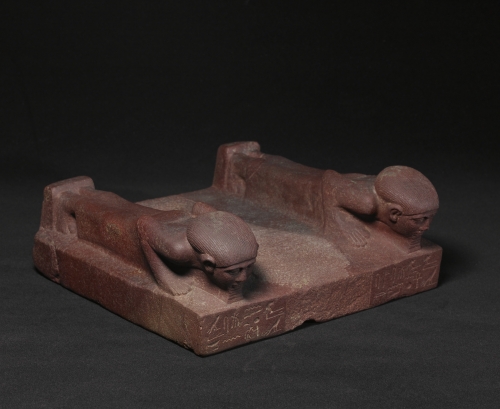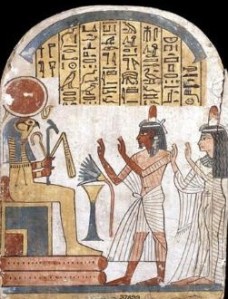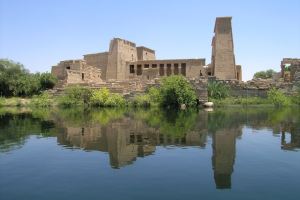Finally, we come to the heart of the personal work of the ministrant of Isis. It is the last of the keys to serving Isis we’ll talk about: the work of spiritual development.
Spiritual growth or development is a process, not an end result. It is the ongoing search for and discovery of the truth of our hearts and souls, our Selves, and our relationship with the Divine.
It is not a single truth nor is it an unchanging truth. The process of growth is, after all, a process of change. It is not a truth contained in the pages of just one book—though Paths to it may be found in many books, written in many different languages. It is a truth most convincingly found in our own experience of the Divine by whatever Name we call It and in whatever form we imagine It. This truth calls us from the core of our Being. It is the truth against which our hearts will be weighed on the Scales of Truth when we pass from this world into the next.
Spiritual growth is the process of discovering our personal truth and learning how that truth is in (or can be brought into) harmony with the Divine truth. Once discovered, this gnosis—this deep, sacred knowing—can serve us as a guide for creating ways to live life more authentically and with more wisdom and compassion.
Our entire relationship with Isis is part of this process. Anything and everything we do in relation to Her, from making offering to deep communion, helps this process. Each and every time we make contact with our Goddess, we can increase our harmony with Her. We are like the strings of a musical instrument that begin to vibrate when the bow is drawn across any one of them. The ancient theurgists would have considered such Divine contact to help “purify” us, that is, to help us connect more clearly with our pure or essential natures.
All of the exercises, rituals, and meditations that make up the stages of relationship with Isis in Isis Magic are designed to help us do this. One of the key tools for growth, the “Invocation of the Shining One,” first makes its appearance at the stage of relationship called the Magician of Isis.
Like Isis Herself, the Shining One has been called by many names. In ancient Egypt, it would have been the Akh, meaning both “shining” and “effective” one. It has also been called the Higher Self, the Deep Self, the True Self, the God/dess Self, the Genius, the Atman, the Augoeides, the Holy Guardian Angel, and the Isis Within. It is that greater part of each one of us which is essentially Divine. Contact with this Divine Self is critical to our spiritual development.
Many people find they have difficulty with this aspect of the spiritual journey. I know I did. And do. It is genuinely difficult work, yet it is vital. Only patience and persistence will see us through. Simply return again and again to the work of making contact with and experiencing the Shining One, the Isis Within.
This work is hard to talk or write about because it becomes very personal and individual. For insight, there are numerous books you can explore. Look for works on enlightenment; Hindu, Buddhist, Christian, Pagan.
The work of spiritual growth will make us weep. Many times. It will also make us laugh with unexpected joy. We will catch a glimpse of the Isis Within. And then we will go on with our lives.
For spiritual growth does not mean there will be no more trouble in our lives. It does not insulate us from trouble or pain. No matter how spiritually developed we may be, we and the people in our lives are still human, capable of all the beauty and ugliness of humanity.
What spiritual development does mean is that we will be able to cope with our day-to-day duties and the trials we encounter in our lives in a much wiser and more compassionate manner. We will be better able to understand—and thus shape—our thoughts and actions so that they are better aligned with our growing gnosis. We will find ourselves less tossed about by our emotions, more able to see the beauty in life. We will become more open, less defensive.
In our relationship with Isis, we experience the sacred. We grow. We discover who we really are. We become wiser and more compassionate. We learn how to live more authentically, in greater harmony with our true selves and the Divine reality of the Goddess. It is, perhaps, the most vital aspect of serving the Goddess as Her devoted ministrant. If we have done it well, we will become better people.
Like many of us (I suspect), I have been living with a very heavy heart lately. Yet I cannot let fear or despair take me. They are not only the mind killers, they are the heart killers. All of us will need both our minds and our hearts to get through this, whether our “this” is internal or external or both. Note to self—and you, if you need it—just keep connecting with Her; keep growing toward Her.



















